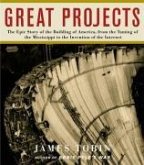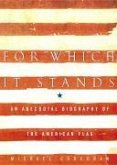Based on a wide reading of letters, diaries and other contemporary documents, Mintz, an historian, and Kellogg, an anthropologist, examine the changing definition of family in the United States over the course of the last three centuries, beginning with the modified European model of the earliest settlers. From there they survey the changes in the families of whites (working class, immigrants, and middle class) and blacks (slave and free) since the Colonial years, and identify four deep changes in family structure and ideology: the democratic family, the companionate family, the family of the 1950s, and lastly, the family of the '80s, vulnerable to societal changes but still holding together.
Dieser Download kann aus rechtlichen Gründen nur mit Rechnungsadresse in A, B, BG, CY, CZ, D, DK, EW, E, FIN, F, GR, HR, H, I, LT, L, LR, M, NL, PL, P, R, S, SLO, SK ausgeliefert werden.
Hinweis: Dieser Artikel kann nur an eine deutsche Lieferadresse ausgeliefert werden.









